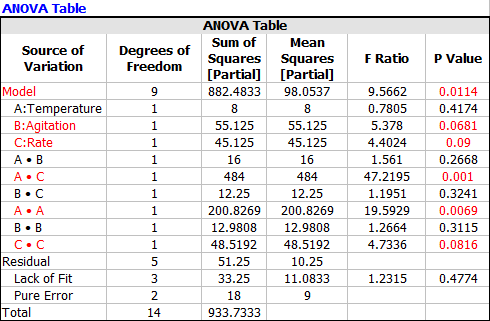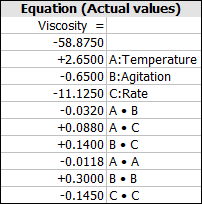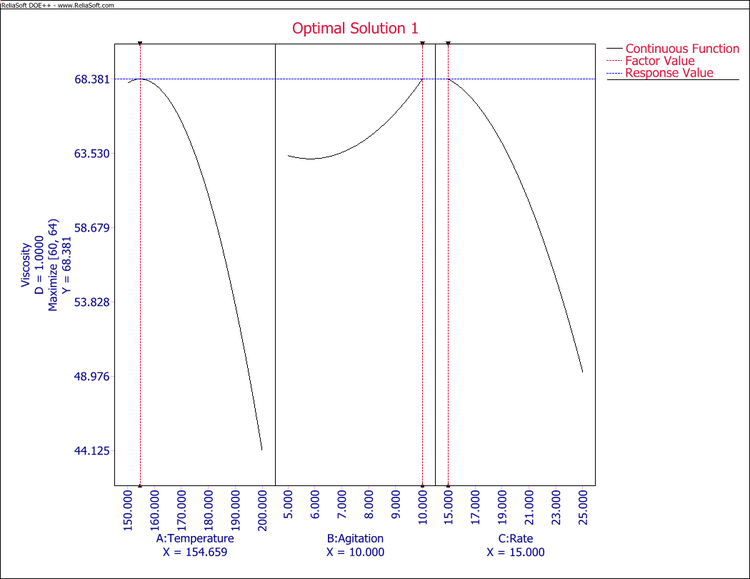Box Behnken RSM: Difference between revisions
Jump to navigation
Jump to search
No edit summary |
Lisa Hacker (talk | contribs) No edit summary |
||
| Line 1: | Line 1: | ||
{{Reference Example|{{Banner DOE Reference Examples}}}} | {{Reference Example|{{Banner DOE Reference Examples}}}} | ||
This example validates the calculation of the Box-Behnken RSM method in | This example validates the calculation of the Box-Behnken RSM method in Weibull++. | ||
{{Reference_Example_Heading1}} | {{Reference_Example_Heading1}} | ||
Latest revision as of 21:08, 18 September 2023
New format available! This reference is now available in a new format that offers faster page load, improved display for calculations and images and more targeted search.
As of January 2024, this Reliawiki page will not continue to be updated. Please update all links and bookmarks to the latest references at DOE examples and DOE reference examples.



